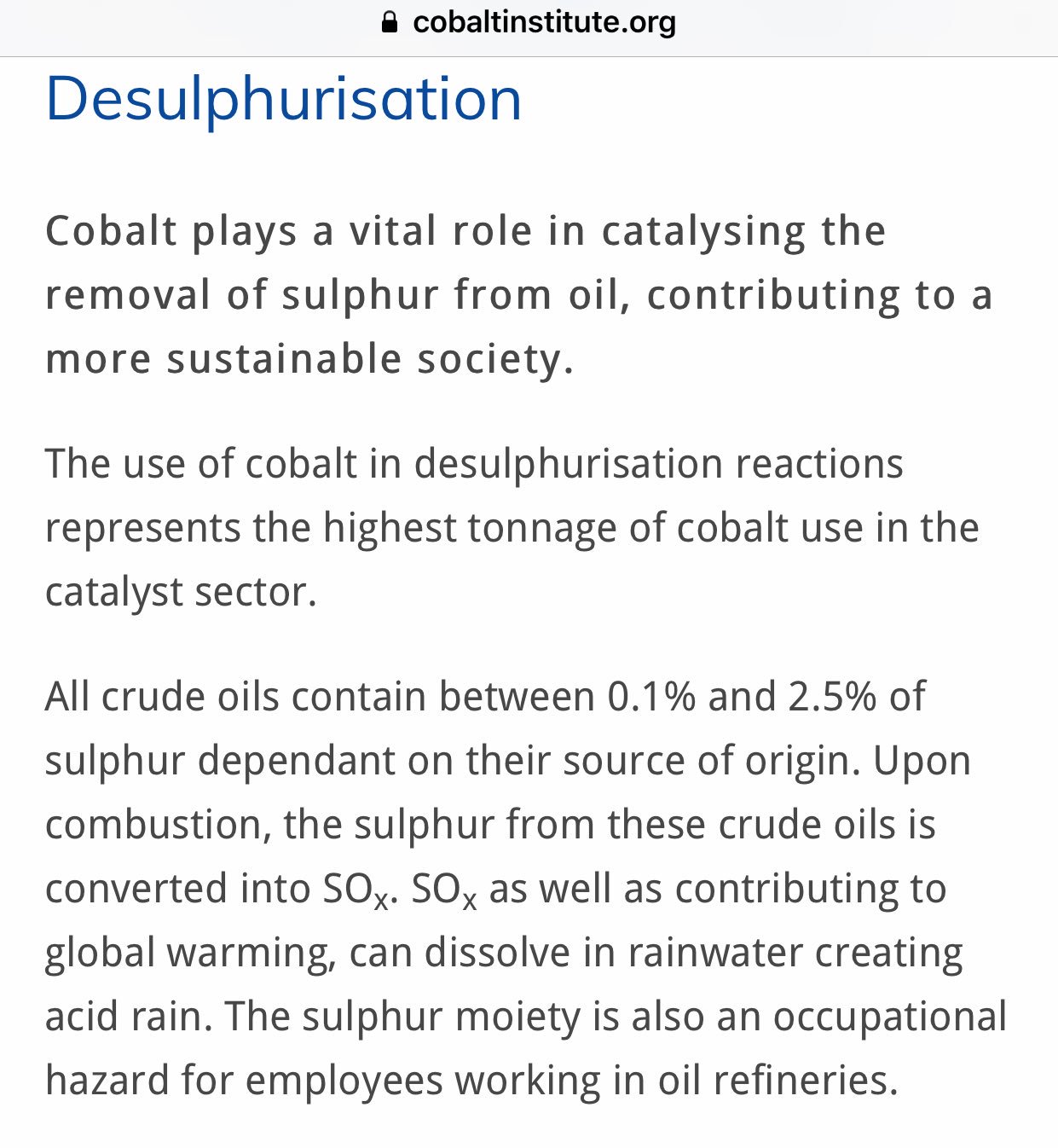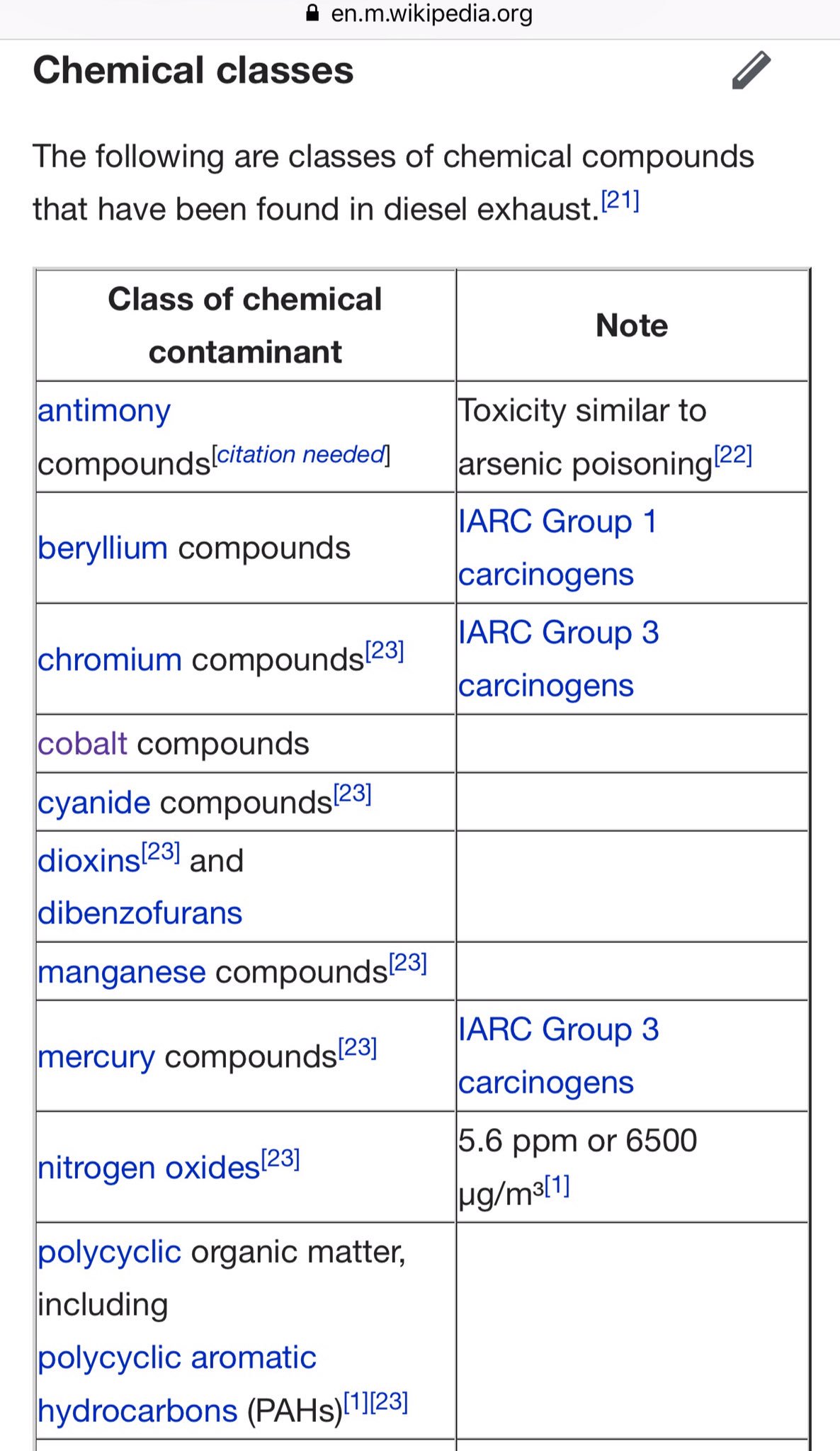BEV, ICE and Cobalt: an illuminating Twitter thread
Thanks to Robert Llewellyn for resuscitating the following Twitter thread. Unfortunately, the thread is so old that neither Thread Reader App nor Twitterrific is able to retrieve it. Twitter's web interface can still retrieve it, so I've taken the liberty of transcribing it below.
Synchronicity on Twitter: "The Dirty Secrets of #ICE - Part 1..." / Twitter:
The Dirty Secrets of #ICE - Part 1 Whenever there’s a debate about the benefits of battery electric vehicles #BEV vs internal combustion engine #ICE vehicles, one of the 1st things usually mentioned is cobalt with lurid stories such as linked here.
But when you fill your tank with petrol or diesel did you know that cobalt is used as a key ingredient?
When we figured out that sulphur in our fossil fuels was a key component to acid rain (remember acid rain?) & also contributed to serious health issues it was decided that ultra low sulphur fuels was the way to go. But the catch is that removing sulphur during the refining process is actually quite hard. You need something to act as a catalyst to aid the Desulphurisation process. So they added a metal to kick start the key reaction.
And yes, the metal they add is cobalt. Here’s the lowdown from the “Cobalt Institute” (cont) https://cobaltinstitute.org/desulphurisation.html
It’s a long and detailed article but the key information is in the first few paragraphs.

So to make low sulphur petrol & diesel, which is the global standard now, they must add cobalt during the refining process. Yes, but that cobalt doesn’t get into the final product we put into our tanks right? Right?? Wrong!!! In fact a lot is left in the final output.
Check out the list of toxins and carcinogens that make up ordinary everyday diesel exhaust emissions for instance. Yes it’s a long list of nasties but look who’s there? Yes, it’s our friend cobalt.

So when the anti-BEV lobby start shouting about cobalt in batteries, tell them about the cobalt in their fuel. At least the cobalt in the battery *stays* in the battery and can be completely recycled. The cobalt in their fuel is spewed out the exhaust for our children to breathe.
And then we should consider how Cobalt relates to EV batteries. So this from Amnesty International confirms that about 20%, at most, of the cobalt from the DRC is hand mined. The rest is machine mined.
Overall, about 60% of the world’s supply comes from the DRC. So that means only about 12%, at the very most, of the global supply of cobalt is actually hand mined. Also add that a lot of that cobalt is used for other things like high quality steel, and the fact that a lot is also used in cell phone, tablet, laptop batteries, and petrol/diesel fuel of course, and that the amount of cobalt actually in EV batteries has fallen dramatically. The chances of hand mined cobalt getting into your EV battery is next to nil.
So it’s just disingenuous & misleading to link unethically sourced cobalt solely with EVs when in reality it’s used for a lot more other applications in every part of our society. But of course it serves many parties with anti-EV interests for that false association to be made.Some selected replies:
simon blackmore @blackmore_s Jun 20
#FFS the #FUD they peddled about BEV's battery chemistry and they are pumping that crap into the air via exhaust fumes.
DIYMicha @DIYMicha Jun 22
... and cobalt is an ingredient in hardened high temperature steel, used in valves and valve seats of ICE engines.
Synchronicity @Synchronicity34 Jun 22
Yes indeed, mentioned further down in the thread.
Synchronicity @Synchronicity34 Jun 21
But the cobalt in batteries stays in the batteries and is then recycled. The cobalt in fuel is distributed though our most populous cities, day upon day, accumulating on our streets, in the air, in our children’s lungs. Which source should you be most immediately worried about?
Synchronicity @Synchronicity34 Jun 21
Key research on the long term cumulative effects of our children ingesting heavy metal particulates such as cobalt are only just starting. I don’t think you are qualified to say whether any other issue is bigger.